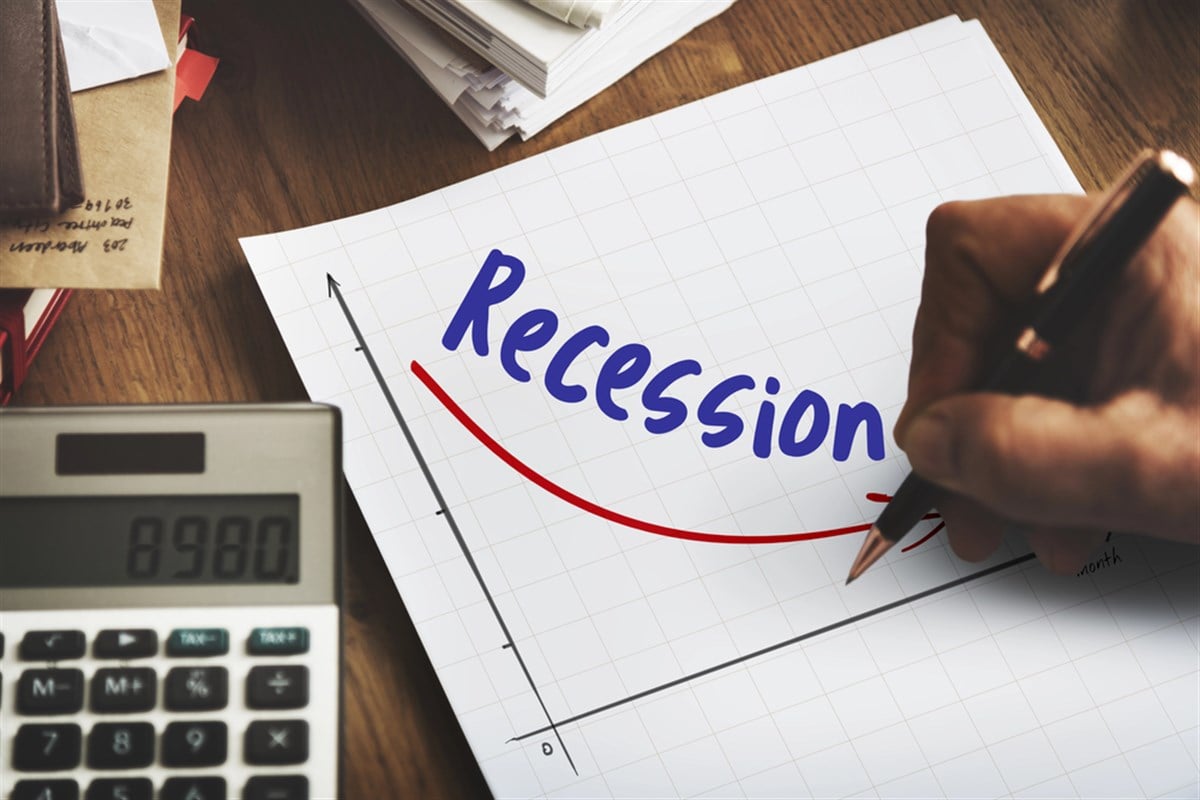
With tariff policies causing extensive worry in markets, one word has started to rear its ugly head more and more: recession. Market observers worry that tariffs could cause a worldwide slowdown as prices rise significantly.
China is the United States' largest trading partner. Around $584 billion in goods flowed between the countries in 2024. If the two countries maintain their high tariffs, demand could fall aggressively over time.
Trump's recent choice not to impose tariffs on countries that don't enact reciprocal tariffs offers a hopeful way out of this scenario. Still, people know the President for his unpredictability, and the battle with China continues to rage. Trump increased tariffs on the country to 125%, although he said that “China wants to make a deal."
Larry Fink, BlackRock's Chief Executive Officer (CEO), says most of the CEOs he talks to believe the U.S. is probably already in a recession. Thus, it is prudent to examine stocks with recession-resistant characteristics. Below are three names that fit the bill.
Costco: Consumers Staples Stock With Strengths Across the Board
Costco Wholesale (NASDAQ: COST) has several characteristics that make it a strong play in a possible recession. First, it is in the consumer staples sector, which means the products it sells are mainly "needs," not "wants." Due to this, the consumer discretionary sector typically outperforms in recessions.
[content-module:Forecast|NASDAQ: COST]One of humanity’s basic needs is food, and demand for it remains steady regardless of economic conditions. Food is also Costco’s most important product, accounting for about 54% of the company’s total revenue in 2024. While not as essential as food, gasoline is another critical need for many consumers, making up 12% of Costco’s revenue last year.
Costco is also known for keeping its prices low. Investment manager Harding Loevner says its Kirkland Signature brand usually costs 20% less than national brands. This gives Costco an advantage in a recession, especially one driven by tariffs that push prices higher.
However, the company still has significant exposure to non-food items, which fall more into the category of "wants." These products accounted for 26% of revenue in 2024. Even so, Costco’s membership fees, which flow directly to the bottom line, help offset this risk. During the 2020 pandemic, the company’s membership renewal rate in the United States and Canada remained strong at 91%.
Dollar General: Low-Cost, Essentials-Focused Retailer
Next up is Dollar General (NYSE: DG). Similar to Costco, the company is also in the consumer staples sector and employs a low-cost strategy. Both of these are beneficial in recessions.
[content-module:Forecast|NYSE: DG]In 2020, Dollar General notably provided a very strong total return of 36%. This compares to the 18% return of the S&P 500.
Essential products make up the vast majority of Dollar General’s revenues. Consumables are the company’s largest merchandise category, making up 82% of its total revenue in 2024.
This includes items such as food, paper towels, toilet paper, over-the-counter medicines, personal hygiene products, pet food, and tobacco. U.S. consumers deem all these items relatively essential.
The remaining portion of the company's revenue was made up of more discretionary items like seasonal products, kitchen supplies, and apparel. Overall, the company’s strategy of keeping its products at a low price point helps make it a good option for consumers when times get tough.
TJX Companies: Off-Price Stores Can Benefit as Consumers Prioritize Discounts
Last up is TJX Companies (NYSE: TJX). Unlike the other two firms, TJX is in the consumer discretionary sector, indicating that its goods are wants instead of needs. However, the company’s strategy somewhat blurs the line between these ideas.
[content-module:Forecast|NYSE: TJX]The firm mainly sells clothing, which is still an important good, although less essential than food. But TJX employs an “off-price” strategy, selling brand-name merchandise at a 20% to 60% discount. This makes its stores a destination for low-income shoppers and can also drive middle-income households to them in a recession.
TJX has outperformed in two out of the last three recessions. Shares rose 30% in the 2001 recession, while the S&P 500 dropped 8%. It also provided a total return of 10% from Dec. 2007 to Jun. 2009, versus the -36% return of the S&P 500.
TJX underperformed the S&P 500 in 2020 but still returned 12%. Analysts at Bernstein recently named TJX one of their top picks during a possible recession.
Overall, these stocks have solid recession-resistant characteristics that are important to consider as fears of a slowdown rise.
Where Should You Invest $1,000 Right Now?
Before you make your next trade, you'll want to hear this.
MarketBeat keeps track of Wall Street's top-rated and best performing research analysts and the stocks they recommend to their clients on a daily basis.
Our team has identified the five stocks that top analysts are quietly whispering to their clients to buy now before the broader market catches on... and none of the big name stocks were on the list.
They believe these five stocks are the five best companies for investors to buy now...




